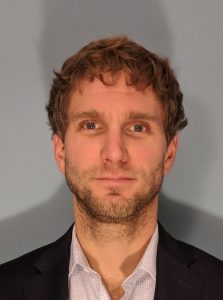I’d like to get personal for this post. My last post was about state-level CS policy. I’ve been engaged in this work for the last few years at the NH Department of Education. This time, I’ll talk about the path that took me to this work, and where I’m going from here. My goal here is to highlight what CS has done for me. My path has been far from traditional, and it might help to illustrate that CS is not just a path to software engineering. So here goes…
How I got into computers
My dad worked for the cable company. He studied electronics when he was a teenager, but never got to complete his studies. He started at the cable company much later in life as a lineman and worked his way up to a role in which he was designing communication infrastructure for central NH. We always had the latest electronics, and when I was a teenager, we were the first house in our town to have broadband internet.
I took a programming class in 9th grade, and I hated it. I don’t remember exactly why, but I told myself that wasn’t something I would do. I didn’t write a line of code again until college.
Studying CS
When I went to college, I was undeclared in the College of Engineering & Physical Sciences. A semester in, I declared Computer Engineering, and later switched to CS. Why was CS different for me the next time around? I’m not sure. Maybe it was the professors or TAs. Maybe it was the Engineering survey course I took when I was undeclared, which helped me to see the big picture of how CS impacts the world.
In the higher levels I took as many interdisciplinary courses as possible. My school offered me a research assistantship to work on data visualization for physics simulations, so I stuck around to work on my MS degree.
Teaching
I’m not sure if my lack of focus is a good thing or a bad thing, but after almost 6 years of college, I still didn’t know what I wanted to do, so I took a leave. I worked a few brief stints in industry, but wasn’t passionate about what I was working on. I realized that teaching & learning are what drive me, so I decided to teach. It wasn’t hard for me to become a HS math teacher, and I was in the classroom in no time. Unfortunately, I had no idea what I was doing!
I got my legs under me, and then had an opportunity to switch schools and teach more CS. This was amazing for me. I got to rediscover what I love about CS, and reinvent myself as a teacher. I was in this job when the Obama administration announced the CSforAll initiative. I was introduced to equity issues in CS while participating in an NSF-funded research project. The principal investigator on that project became a mentor to me. I started advocating for broader participation in CS at my school.
Advocacy & Policy
I caught wind of a state-level job that was opening up: STEM Education Director. I thought this would be a great opportunity to work on broadening participation statewide. I got the job in part because of my experience and goals in CS education, and my connections with local leaders.
The mentor mentioned above brought me onto our state team in the ECEP (Expanding Computing Education Pathways) Alliance. This team established the CS4NH Alliance. With a strong team in NH and national support from groups like CSTA, ECEP, CSforAll, and Code.org, we’ve made great progress in short time.
The Next Chapter
With inspiration from the many amazing people I’ve had a chance to work with, I decided to apply to doctoral programs. In the fall, I’ll be going back to school and start working on a project funded by NSF under the STEM + Computing Partnerships program. Wherever this leads me, I hope to inspire and empower the next generation of CS educators.
And the moral of the story is…
I hope you take something of value away from this story. Here are a few that come to my mind as I write this:
-
- Apply your CS skills and knowledge in other domains. CS has helped me to analyze not just explicitly computational processes and computing systems, but also teaching and learning processes, and complex systems like our public education system.
- Connect with CS innovators and be a sponge. I’ve been inspired and mentored by CS innovators and educators. I truly believe that the CS Education community has some of the most amazing, supportive people in the world.
- Keep your ear to the ground. Keep track of what’s going on and what opportunities are out there. Follow your muse!
CS educators and advocates – keep on innovating, and share your story!

David Benedetto
David Benedetto, At-large Representative
